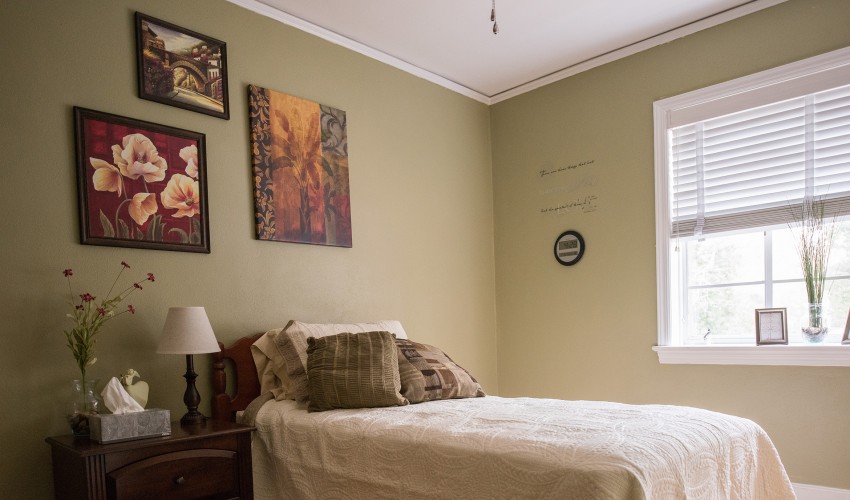Social worker Sherry Campbell was well aware of the need for food, shelter and basic services within Chattanooga’s unhoused population, and she knew where to refer those in need of help.
But a conversation with a sick man afraid of dying alone on the street grabbed at her heart.
How could she reassure him, and others like him?
She and colleague Rachel Smith, also a social worker, rallied the troops and laid the foundation for Welcome Home of Chattanooga.
Here, the homeless would have access to hospice services that provided care and comfort in their final days.
The doors opened in March, and the first few months have been consumed with love, laughter, tears and peace. Along the way, those who have entered and exited the little converted house have left their mark on those who continue the work.
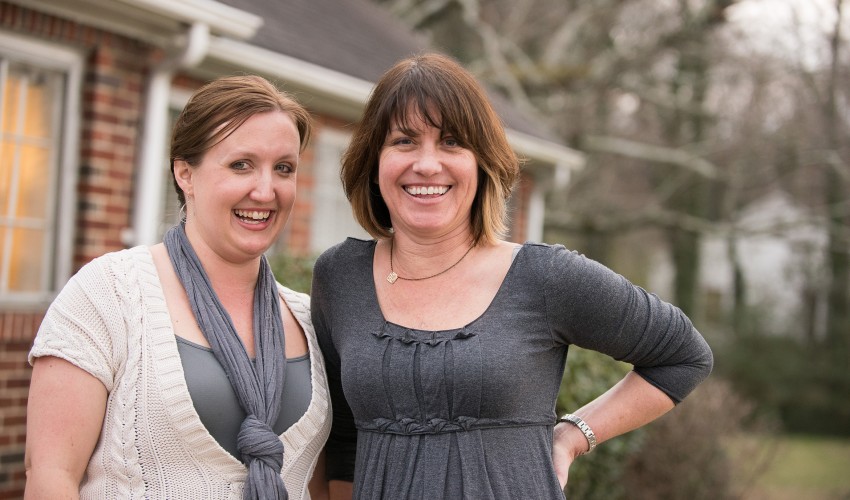
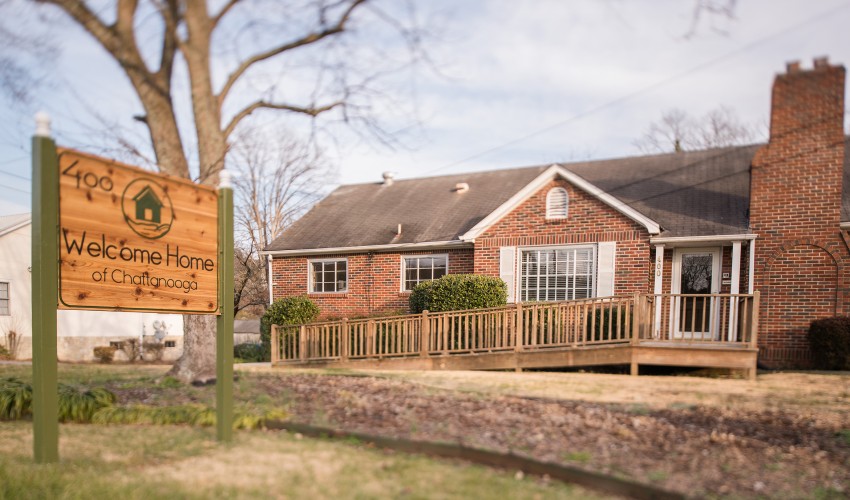
Smith and Campbell saw a need and took action.
“It’s been so busy, but so wonderful,” Campbell says. “We have had 12 residents so far, and more than 100 volunteers have come to cook, clean and care for them.”
“We have a lot of retired and disabled people who come in to help us. We’ve been successful at obtaining some additional grant money, and now we are an AmeriCorps agency, so we can pay a small stipend in educational money, so we get students as well.
“A wonderful mix of people bring us their time and talents.”
Residents from all walks of life
While Welcome Home of Chattanooga’s foundational intent was to serve the homeless, it does take residents who have become estranged from family, or who are living alone with no real support system for their final days.
Often when they come to Welcome Home, they are able to restore those family contacts, but they also make new friends who care for and support them as they prepare to die.
“Those reconciliations, those connections, they are beautiful to see,” Campbell says. “We forge a lot of new relationships, and repair a lot of old ones, here.”
And although their time is short, their impact lingers.
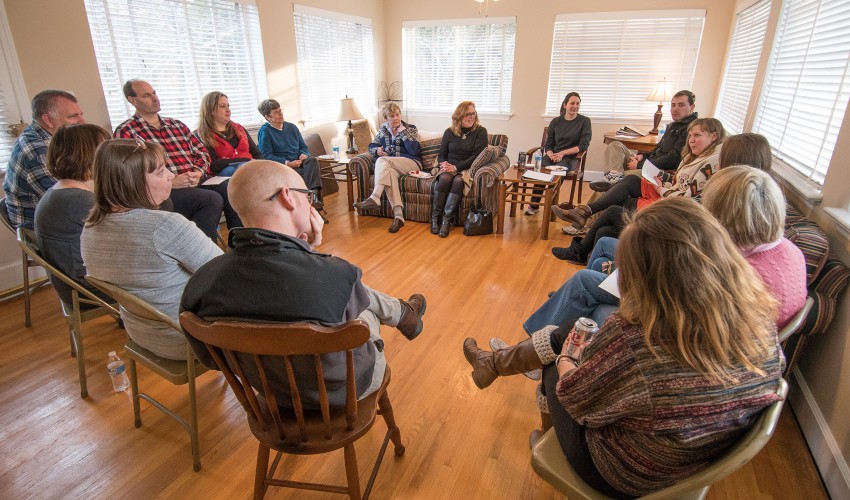
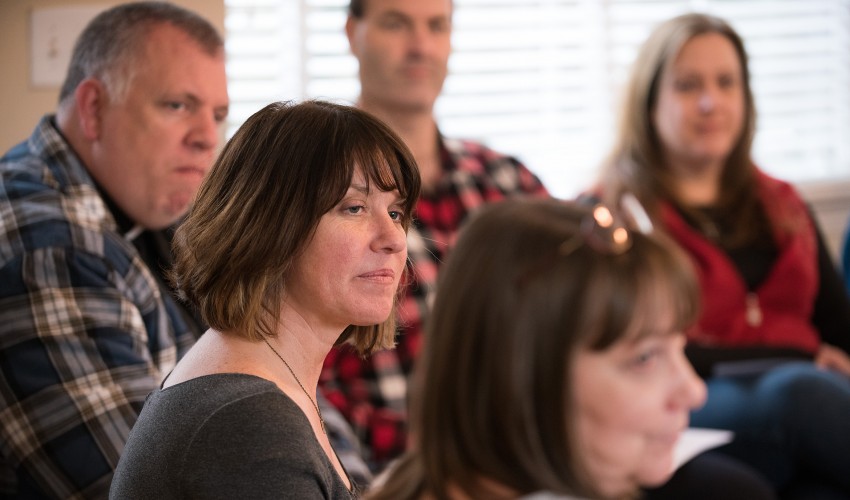
Campbell recalls George, who was an Army veteran and had been living in condemned housing.
“He would boss us around, but he had a great sense of humor,” she says, laughing.
“He used a walker, and you could hear him slam that thing down and come rolling your way. We would congregate in the living room and he’d yell at me to get his cigar and his drink, and then he’d head to the porch. That always tickled me.”
“He loved us and hugged us, even though I’d get onto him for being so bossy. He would just laugh and laugh. And his family let us speak at his funeral, which was such an honor.”
And then there was David, who’d been living in an extended-stay motel. Because of his drinking, he’d become estranged from his sister. Once he got to Welcome Home, however, she was comfortable visiting him and they were able to repair their relationship.
“One day his sister came over for dinner and I wanted to get a photograph of them,” Campbell recalls.
“They were shy about it, but once we got going they really hammed it up. I am so glad they did because he died two days later.”
“Now she has those pictures, those big grins, to hold onto.”
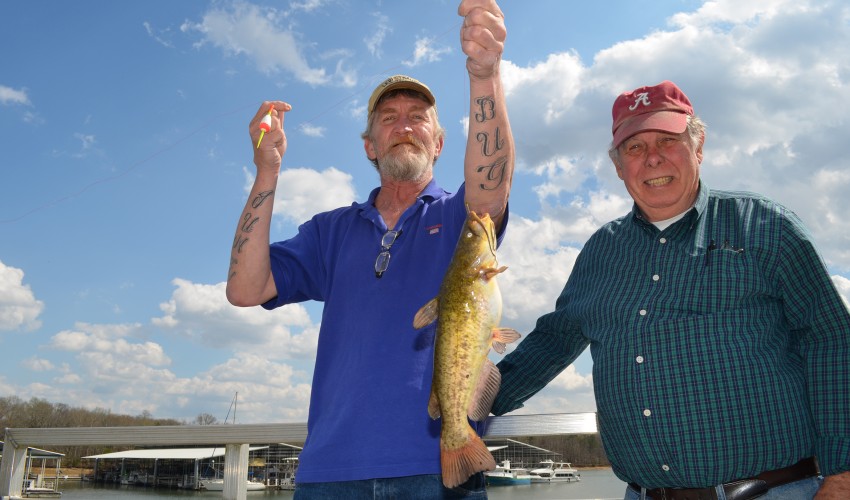
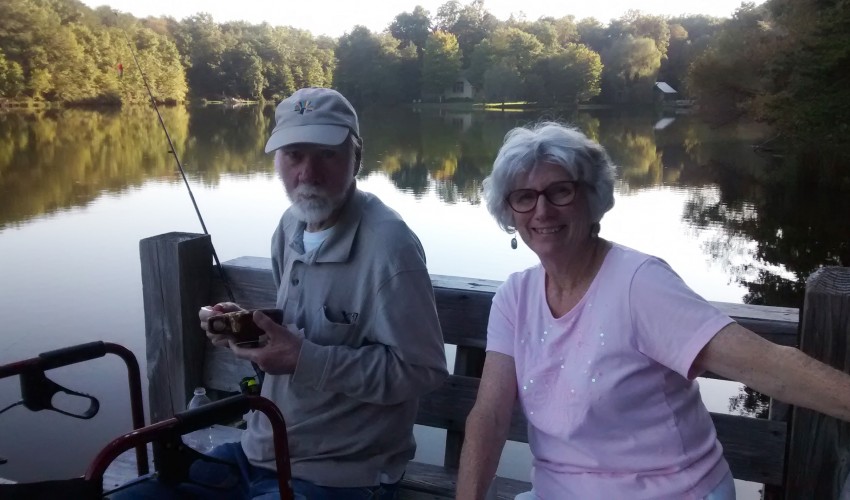
Many Welcome Home residents enjoy outdoor activities like fishing with friends.
Volunteers forge deep bonds with residents
Many people who donate time to Welcome Home think they can only cook and clean, or maybe run errands.
But once they’re in the door and begin to interact with residents, their experience invariably deepens.
“Everyone almost always has a favorite resident, and if that person has no family at all, volunteers will come and keep vigil ,” Campbell says.
“They’re not on the schedule, but they know the end is coming and they want to hold that person’s hand for a while. Some of these people are only with us a couple of weeks, but you can’t help but connect with them.”
To no one’s surprise, Campbell herself isn’t immune to the residents’ pull.
She recalls her many interactions with David, who was only 53 when he died and was quite active despite his various physical ailments.
“He would sit on the porch and carry on with all of us,” she says.
“He called me his queen, and said that my dream, meaning Welcome Home, had become his dream. It was his dream home.”
“I always make a big deal out of special occasions and events, and so for the Kentucky Derby he took a toboggan that had been donated and picked all kinds of flowers out of the yard to stick into it. He ran around in the yard for quite a while putting what he called my ‘derby hat’ together. I’ll always love that hat, and think of him when the Kentucky Derby rolls around.”
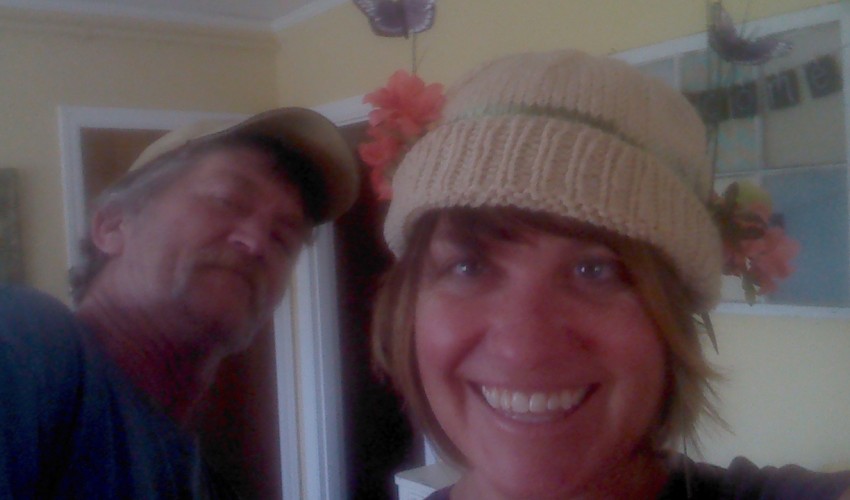
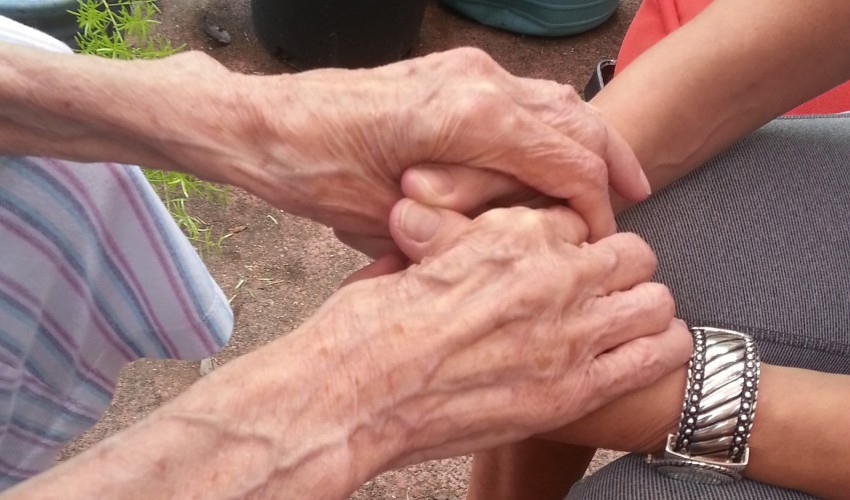
New beginnings, peaceful endings
Sometimes the worlds of residents and volunteers collide in other ways.
When Donna came to Welcome Home, the environment was so much better than what she had been experiencing that her condition actually improved. So much so, in fact, that she was actually discharged — a first for Welcome Home. But that’s only the beginning.
“We helped her get an apartment across the street once she left because she had really formed a community and family here,” Campbell says.
“We couldn’t just boot her out. Now she volunteers here.”
To make sure that George, David and all the others who have passed, or will pass, through Welcome Home are remembered, a memorial wall is now being put together.
It will feature photos of residents, with notes and memories written by volunteers for each one.
“Each one of them has been so unique, and has brought something so different to the table,” Campbell says.
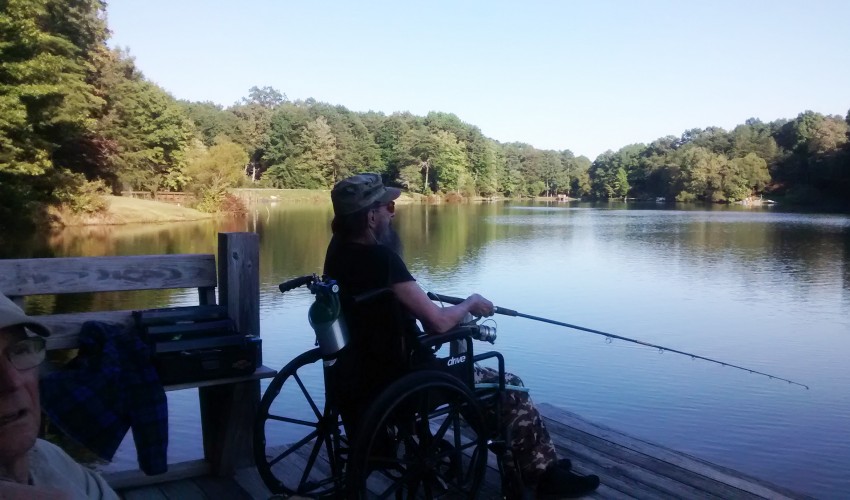
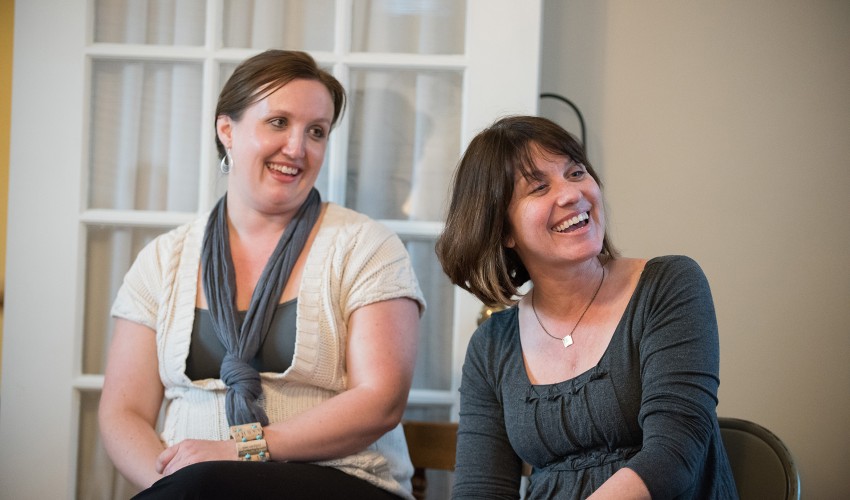
“We want to have our wall, and we are also working with the Hart Gallery, which provides art classes and supplies for people who are homeless and then allows them to sell their art at the gallery.”
“We are going to work with them on a 3-D memorial, something like a tree with that could have leaves, or birds, with the residents’ names on the branches.”
That project and many more — plus the daily tasks around volunteer, scheduling, resident care and more — make for busy days.
But Campbell says that while Welcome Home of Chattanooga has been “harder than I thought it would be,” she has only to stand still for five minutes in order to absorb how much it’s needed.
“The blessings I get from being here make up for anything that might go wrong,” she says.
“The volunteers have been out of this world — I can’t say enough about them. And our residents have been beautiful teachers.”
“They have taught us about dying well, and what’s important at the end of life.”
